THE GREAT HEDGE
In trying to nail down the genesis of my interest in the Nobel Prize, the best I’ve been able to come up with is that that when I was four years old I fell down the stairs. It was my first memorable lesson in the randomness of things. “How could this have happened?” screamed my young consciousness and in that moment I realized something had to be done about an environment disorderly enough to permit such a humiliation. In the interest of personal safety, I adopted various policies, such as refusing to listen to any one of my long-playing records until I had listened to all of them, in order. Take that, ye dark powers! The Swedish Academy often appears to obey some similarly recondite logic; the announcements, and pronouncements, are delivered, against general bewilderment, with bracing assurance, like a child explaining exactly why it is necessary to check for dandelions in his breakfast cereal. They say “This. This one here has made all the difference,” thereby holding at bay, or seeming to, or at least to their own satisfaction, the whole chaotic ocean of contemporary literature. The Nobel Prize is a hedge against a universe where, with a single misstep one can tumble down a never-ending staircase.
There is a character in László Krasznahorkai’s novel Seiobo There Below whose passion for baroque music is so fierce that he can only view the music of any other era as inferior, Mozart and Beethoven notwithstanding. The reader wonders how it came to be that the full scope of music throughout history poses such a threat to his sensibilities that he must set this rigid limitation. Yet we are sympathetic. He’s the kind of person we would be loathed to sit next to on a flight or on the bus, but, from the safe distance of the printed page, we quietly admire his dedication, and, even more, his capacity to love something so much. Besides, we think, the world needs its quota of cranks. But he becomes an object of tragic fascination insofar as he is unable to live alone with this passion. He must share it. Which is to say, he must share the unsharable. He is profoundly overweight, because, we sense, his lone and hermetic yearning swells within him. He gives a lecture in the library of a small town’s cultural center, entitled “A Century and a Half of Heaven”, to an audience of eight elderly men and women. He becomes glassy-eyed as he describes the opening measures of Bach’s St. Matthew Passion, and a veritable Jonathan Edwards against all whom he considers comers to musical pretensions. His so-called lecture is really more of a rant, impassioned, windy, well-informed yet oddly un-informative, and so incomprehensible to his red-eyed and arthritic audience that the only thing keeping that audience in thrall is it’s collective anxiety about his suspenders. Will they hold? In the end, he leaves the podium, buttons his coat and, with tears in his eyes, walks out the door, saying at the top of his voice, from The Passion, “Mein Jesu, gute Nacht! Mein Jesu, gute Nacht!” He weeps, not for beauty, but because he has failed, as he will always fail, to show that beauty, so personal, so encompassing, to anyone else.
The Nobel Prize often has this quality, minus the pathos, of a private passion publicly shared. Often the winner is literally the obsession of a single member of the committee who plumps for him or her for years. When, late in life, Arthur Lundkvist was offered a place in the Swedish Academy, he accepted, with reservations, largely with the intent of securing the Nobel for an Australian writer hardly anyone in Sweden had even heard of, let alone read. In 1973 he succeeded in wearing his fellow committee members down and Patrick White received the prize.
Like the lecture delivered by Krazhnahorkai’s character, the statements issued following a Nobel announcement tend to be impassioned (in the Scandinavian sense of the word, that is, not in delivery but in the furrow-browed urgency of the content), windy, well-informed yet oddly un-informative. Take, for example, Permanent Secretary Peter Englund’s description of Patrick Modiano: “A Marcel Proust for our time.” Not only does this give no sense at all of the kind of writer Modiano is, it is actually entirely misleading; apart from writing in French, and, alright, treating of memory, his work is nothing at all like Proust’s. In fact, with his short books filled with short, perfect, if rather fazed sentences, Modiano might even be held up as Proust’s antithesis. But there is something touching in the ardency of Englund’s assertion. He clearly admires this writer.
In a couple days a new winner will be announced. What private passion will be put forth as the perfect hedge against all that literature out there, waiting to overwhelm us?
MY SHORTLIST, A HEDGE AGAINST NOTHING:
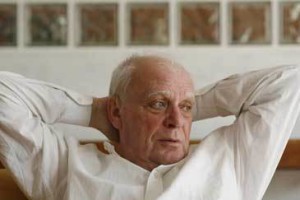
Antonio Lobo Antunes (Portugal)
There’s a piano in the sand, he thought as he beheld a black and almost geometric thicket behind a bundle of reeds, a piano in the sand circled by gulls and other ocean birds, and his straggly-haired grandmother, wrapped in the wedding dress he had kept in a chest, tapped her arthritic fingers over the caries-riddled keys, stumbling through a children’s lullaby. The low-blowing breeze made the tulle of her veil flutter. There was a dead cat in the sand, nearly covered over by the shore’s stubble. A cloud of huge flies, blue-winged and red-bodied, buzzed around it. The anchored boats lazily shifted their haunches. He stood for a moment, empty-eyed, looking at the rotted animal, then turned and went back to the inn.
- from An Explanation of the Birds
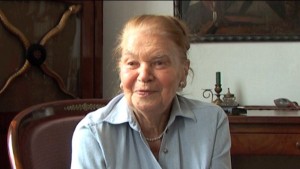
Julia Hartwig (Poland)
How to Honor a Place
An inscription announces that the continental divide
between the Pacific and the Atlantic
runs exactly here
A river with its beginning in this region
must think hard
which of the two oceans it should belong to
which mother it acknowledges
in whose gullet it is to be lost forever
and become nameless
How to honor this unique place
with a shout with silence
I am standing over the divide
as if on the back of a bison blinded by the sun
with its legs spread out The rain of waters
flows on both is shining sides
And I
where do I belong
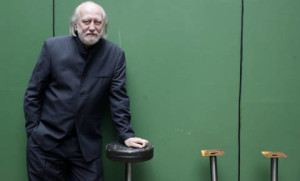
Laszlo Krasznahorkai (Hungary)
A bird fishing in the water: to an indifferent bystander, if he were to notice, perhaps that is all he would see—-he would, however, not just have to notice but would have to know in the widening comprehension of the first glance, at least to know and to see just how much this motionless bird, fishing there in between the grassy islets of the shallow water, how much this bird was accursedly superfluous; indeed he would have to be conscious, immediately conscious, of how much this enormous snow-white dignified creature is defenseless—-because it was superfluous and defenseless, yes, and as so often, the one satisfactorily accounted for the other, namely, its superfluity made it defenseless and its defenselessness made it superfluous: a defenseless and superfluous sublimity;
- from Seiobo There Below
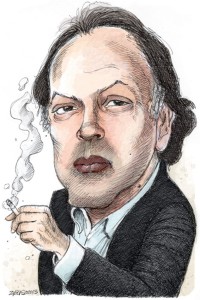
Javier Marias (Spain)
How could he have spent half his life with a colleague, a close friend — half his childhood, his schooldays, his youth — without having so much as an inkling of his true nature, or, at least, of his possible? (But perhaps any nature is possible in all of us.) How can someone not see, in the long term, that the person who does end up ruining us will indeed ruin us? How can you not sense or guess at their plotting, their machinations, their circular dance, not smell their hostility or breath their despair, not notice their slow skulking, their leisurely, languishing waiting, and the inevitable impatience that they would have had to contain for who knows how many years? How can I not know today your face tomorrow, the face that is there already or is being forged beneath the face you show me or beneath the mask you are wearing, and which you will only show me when I am least expecting it?
- from, Your Face Tomorrow, vol. I: Fever and Spear
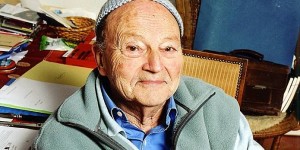
Michel Tournier (France)
February 12, 1938. A woman customer came in to see me. She had her little girl with her, a child of about five or six, who got scolded when they were leaving for trying to shake hands with me with her left hand. It suddenly struck me that in fact most children under seven—the age of reason!—naturally offer to shake hands with the left hand instead of the right. Sancta simplicitas! They know, in their innocence, that the right hand is soiled by the vilest contacts: that every day it puts itself into the hands of murderers, priests, policemen and politicians as blithely as a whore hops into a rich man’s bed, whereas the humble unobtrusive left hand keeps in the background like a vestal, reserved for sisterly clasps alone. Must remember this lesson and always hold out my left hand to children under seven.
- from, The Ogre
